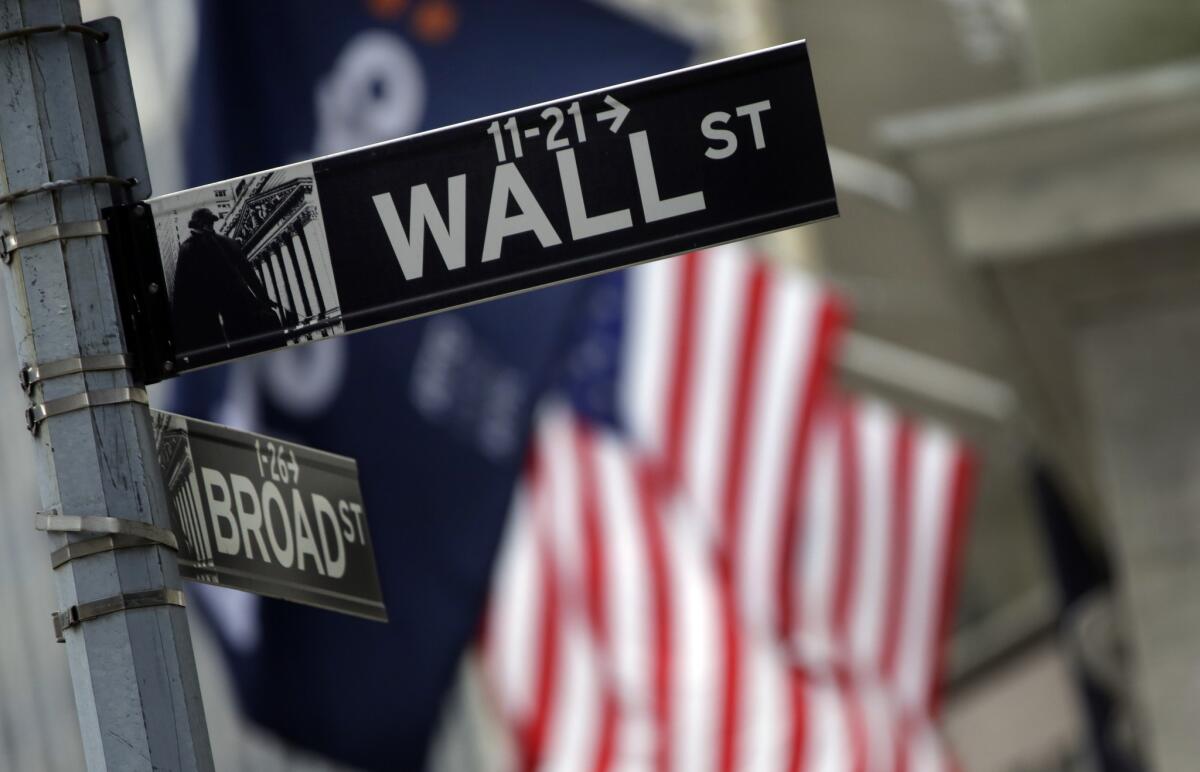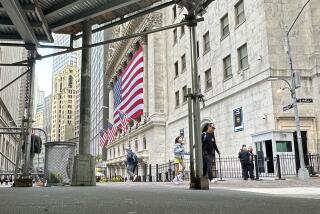Stock indexes rise after Fed raises interest rates

A Wall Street sign is seen next to the New York Stock Exchange in New York City.
Stocks climbed Wednesday after the Federal Reserve raised interest rates, a long-expected vote of confidence in the U.S. economy. At the same time investors were encouraged that the Fed emphasized that further increases will be gradual.
The market was slightly higher at midday and rose steadily through the afternoon after the Fed released its policy statement and as Fed Chair Janet Yellen gave a news conference explaining the Fed’s decision.
The Dow Jones industrial average rose 224.18 points, or 1.3 percent, to 17,749.09. The Standard & Poor’s 500 index added 29.66 points, or 1.5 percent, to 2,073.07. The Nasdaq composite gained 75.77 points, or 1.5 percent, to 5,071.13.
The market finished higher for the third day in a row, something that hadn’t happened in almost two months. The S&P 500 is up 3 percent over the last three days.
The biggest gainers were sectors known for paying big dividends. Utilities surged 2.6 percent, while telecommunications and consumer goods makers rose 2 percent. Only the energy sector finished lower as the price of oil dropped and natural gas continued to fall.
Paul Christopher, head global market strategist at Wells Fargo Investment Institute, said investors think big dividend payers might pay even more out to shareholders and buy back more stock because as interest rates rise, they’ll be reluctant to spend a lot of money on equipment.
The Federal Reserve raised its main interest rate by a quarter of a point, a move that was widely anticipated in the markets. That rate had been near zero for seven years.
For months the Fed has been suggesting it would raise borrowing costs from their historically low levels because the U.S. economy has improved a great deal since the financial crisis and the Great Recession. The S&P 500 has more than doubled since the Federal funds rate was cut to zero in 2008. Unemployment, which peaked at 10 percent, is now at five percent.
The Fed emphasized Wednesday that it plans to raise interest rates slowly.
Stephen Freedman, senior investment strategist at UBS Wealth Management Americas, said the Fed is “taking off the Band-Aid” because the economy has healed substantially.
“Three or four hikes next year would be, historically speaking, extremely slow and progressive,” he said. “The Fed is not going to choke the economy.”
The boost in interest rates lifted metals prices. The yield on the two-year Treasury note also rose to its highest level in five years.
Oil prices and energy stocks skidded after the U.S. government said oil stockpiles grew 4.8 million barrels last week. The price of oil has plunged to its lowest levels in more than six years because supplies continued to rise as the global economy struggles.
Benchmark U.S. crude dropped $1.83, or 4.9 percent, to close at $35.52 a barrel in New York. Brent crude, a benchmark for international oils, lost $1.26, or 3.3 percent, to $37.19 a barrel in London. U.S. crude had climbed over the last two days after falling beneath $35 a barrel Monday.
Pioneer Natural Resources lost $10.18, or 7 percent, to $134.40 and Devon Energy dropped $1.30, or 4.1 percent, to $30.57.
Natural gas, which has dropped to 16-year-lows, lost 3.2 cents to close at $1.79 per 1,000 cubic feet. Natural gas has been falling as traders anticipate weaker demand for home heating due to the unseasonably warm winter weather in the U.S.
The price of wholesale gasoline fell 1.2 cents to $1.233 a gallon and heating oil lost 3.5 cents, or 3 percent, to $1.112 a gallon.
Payment card processor Heartland Payments climbed after it accepted an offer from Global Payments worth $100 per share, or $4.3 billion. Heartland provides credit, debit, and prepaid card processing and security technology services nationwide. Its shares rose $9.87, or 11.6 percent, to $94.97.
The government said the pace of homebuilding increased in November on a big jump in apartment construction in the Midwest and the South. Construction of single-family houses also reached an eight-year high. The Commerce Department said Wednesday that total housing starts climbed 10.5 percent.
Shares of homebuilders rallied. Beazer Homes rose 64 cents, or 5.6 percent, to $12.13. PulteGroup added 63 cents, or 3.6 percent, to $18.02 and D.R. Horton advanced 80 cents, or 2.5 percent, to $32.26.
U.S. government bond prices fell. The yield on the 10-year Treasury note rose to 2.30 percent. The euro edged up to $1.0970 from $1.0917 late Thursday while the dollar rose to 121.85 yen from 121.73 yen.
The price of gold rose $15.20, or 1.4 percent, to $1,076.80 an ounce and silver jumped 47.8 cents, or 3.5 percent, to $14.25 an ounce. Copper picked up 1.5 cents to $2.07 a pound.
MORE FROM BUSINESS
Stocks post biggest gain in a week, led by energy and banks
Valeant’s outlook for the quarter, year and 2016 grows grim
How the budget deal opens the door even wider for secret money in politics
More to Read
Inside the business of entertainment
The Wide Shot brings you news, analysis and insights on everything from streaming wars to production — and what it all means for the future.
You may occasionally receive promotional content from the Los Angeles Times.










